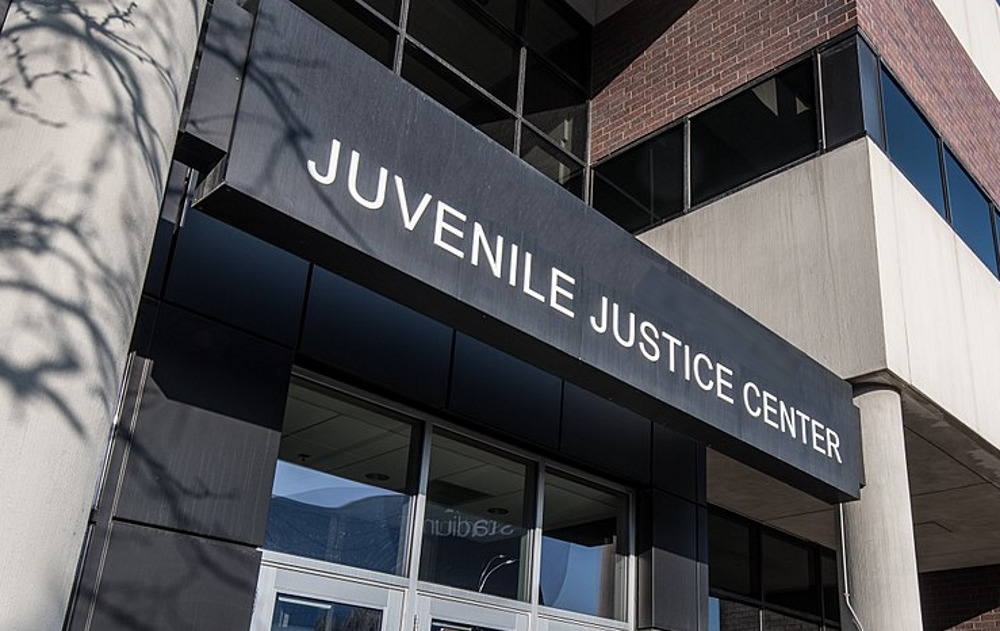LATEST ON THE HUB
Unspent American Rescue Plan funds to lower the number of students who wind up in the juvenile justice system. The impact of racial disparities resulting from handling children through the adult criminal justice system. Innovative law school partnerships to aid youth simultaneously in the foster care and juvenile justice systems. How children without lawyers fare in immigration proceedings.
Juvenile Justice Resource Hub curates those and other analyses, reviews and research on juvenile justice policy, practice, reform and programs. That includes ones involving mental and behavioral health, gun violence, foster care and racial and economic parity/disparities.
![]()
State Action to Narrow the School to Prison Pipeline (Part One)
State Action to Narrow the School to Prison Pipeline (Part Two)
A small number of states have used what’s been an influx of federal relief funds to address the overcriminalization of students, an analysis from The Sentencing Project has found. The Sentencing Project reviewed states’ plans for using their $122 billion share of the $1.9 trillion American Rescue Plan Act to help students return to school safely and successfully as Covid-19 lingers and to bolster student success in subsequent years. Part One of the report shows that few state plans addressed prosecuting truancy and not a single state proposed to use the funds to reduce arrests at school. An August 2021 report from The Sentencing Project suggested that the federal funds – when combined with important lessons learned from evaluation research – present a chance to stop criminalizing youth misbehavior and keep kids in schools and on track. Part Two of the report highlights what Sentencing Project analysts deem as promising approaches to the problem by a small number of states.
Back-to-School Action Guide
Strategies to improve school climate; reduce school arrests and student suspensions and expulsions; and more effectively address misbehavior at school are among what a report from The Sentencing Project lists as evidence-based efforts. The report, those researchers wrote, also provides information on how to support students returning from pandemic-related remote learning in ways that help them attend school, avoid disciplinary problems, thrive academically, graduate and go to college.
Youth in Adult Court, Jails and Prisons
Youth of color, disproportionately, are counted among youth who are treated like adults in the U.S. legal system. That’s true even though fewer youthful offenders recently have been charged, prosecuted and sentenced as adults, a reversal that partly owes to research on adolescent brain development, according to this brief from The Sentencing Project. It traces the history, harms and trends on this front, while citing what those analysts suggest is a need for continued reform.
Explainer: The Significance of Indiana’s IOYouth Bill
A recent Indiana initiative is slated to expand pre-court diversion options; limit detention of children under 12; and require the collection and tracking of statewide juvenile justice data. In the coming year, Indiana will establish a statewide oversight committee to create policies and plans for implementing the new law and establish guidelines for issuing grants to fund those diversion and behavioral health initiatives. The legislation follows research-based policy recommendations produced by the IOYouth initiative, launched in September 2020. This explainer from The Council of State Governments Justice Center describes the development and intent of these reforms.
Building Capacity to Support Dual Status Youth in Harris County, Texas
A partnership between the Harris County Youth Collective and University of Houston legal clinic is improving outcomes for youth who are involved in both the juvenile justice and child welfare systems, according to Georgetown University’s Center for Juvenile Justice Reform. Through the partnership attorneys are being trained in how to best serve this population. Organizers of the Juvenile and Children’s Advocacy Project say theirs is the nation’s only U.S. law clinic they’re aware of that is focused specifically on serving the needs of dual-status youth.
Representation Matters: No Child Should Appear in Immigration Proceedings Alone
Children in immigration proceedings should have the right to court-appointed counsel just as they already do in at least some cases involving delinquency, status offenses, dependency, termination of parental rights and judicial bypass, according to Vera Institute. Youth who entered the United States without a parent or guardian, may be entitled to, among other offerings aimed at helping them remain in the United States, special immigrant juvenile status, a legal protection for children who have been abused, abandoned or neglected; asylum, which is for those fleeing persecution in their home country; and protections for survivors of crime or human trafficking.
![]()
Find more information, including links to additional resources, at JJIE Hub: Latest on the Hub.
